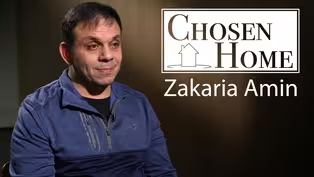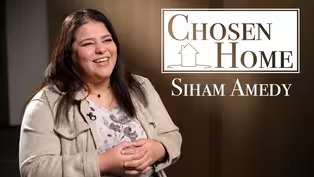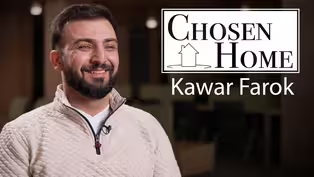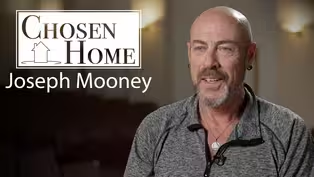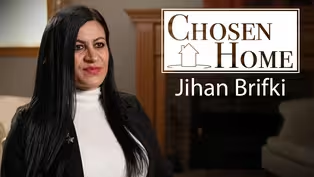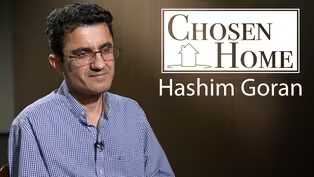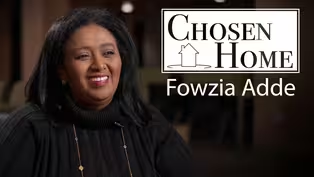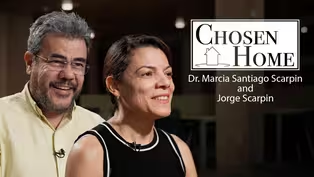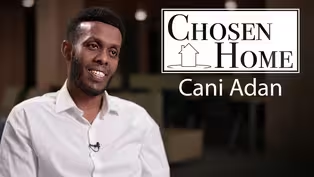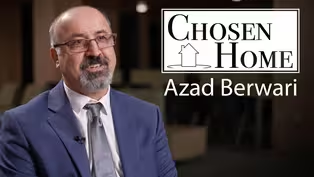Chosen Home: Zakaria Amin
Clip | 6m 13sVideo has Closed Captions
Zakaria Amin shares his immigration story.
Zakaria Amin shares his story of coming to Moorhead, MN, after working with US Military in Iraq and finding a new career in his new home.
Problems playing video? | Closed Captioning Feedback
Problems playing video? | Closed Captioning Feedback
Chosen Home: Zakaria Amin
Clip | 6m 13sVideo has Closed Captions
Zakaria Amin shares his story of coming to Moorhead, MN, after working with US Military in Iraq and finding a new career in his new home.
Problems playing video? | Closed Captioning Feedback
How to Watch
is available to stream on pbs.org and the free PBS App, available on iPhone, Apple TV, Android TV, Android smartphones, Amazon Fire TV, Amazon Fire Tablet, Roku, Samsung Smart TV, and Vizio.
- My name is Zakaria Amin, and I go by Zak.
So I was born and raised in the city of Erbil.
It is one of the oldest city in the world, and we call it Kurdistan.
Kurdistan is not a country, but there's a semi-autonomous region.
They have their own parliament, government, and ministry cabinet and everything.
It was really hard.
My dad passed away when I was only 11 months, and we had a very big family.
My mother had to raise and take care of all the kids, like 11 kids.
And I was born in 1980 and I finished my college and my schooling there, and I became a teacher for a couple years before I became a translator for the American Army and police trainers.
It was really hard working because we were going to very high-risk areas where, and at that time they were like lots of extremist groups.
They were making explosions and things like that.
And we had to go to those kind of places.
I don't wanna hide from you that I have post-traumatic stress disorder, and when there's a sound, it just reminds me about the sounds of the explosions.
Sometimes I do have nightmares.
It's not easy, it's not easy, no.
So it was always, always like dangerous.
But I found out later after working for a few years that translators were more targeted than the American personnel because they were considered as traitors by the extremist groups.
So all the translators were looking for opportunities to apply for immigration visa, but it was very, very hard.
It took me two years.
I went through a lot of paperworks, like screening, going to interviews, and what you hear from the media that people are coming without screening, that's not true.
I was a trusted translator for eight years working for the American personnel, but they made me go through a lot of process until I got the visa.
I don't want to leave all the siblings and family, friends, memories, still thinking of them.
But I try to get adapted and I'm still in the process of getting adapted.
One of the things actually that drives me to be hopeful and working hard is my kids.
I have one son when I, and then my wife when we immigrated to here, and I have two other sons.
They're born here and their success is mine.
Their happiness is mine, so I'm living for them.
I remember the time when we came here, my eldest kid was only two and a half, and he was very quick in learning things and he knew perfect Kurdish at the time.
He was too little compared to the other kids to know the language, but he was always ahead of his peers.
And he came back home one time when we were new here and he started crying.
I said, "Why are you crying?"
He said, "I don't know why people do not understand me and I don't understand them."
And I felt so bad, okay?
But let me tell you now, he's making fun of my accent, my funny accent.
When I got here, so I tried to get the job and everybody's job dream is to get a professional job, but they told me that, oh, you don't have American certificate, or American degree is not working for jobs.
So I had to go back to school.
So I went to take business classes at M State, Minnesota Technical Community College in Moorhead.
So I finished associate degree in business.
I applied for so many jobs after I did that and I was getting rejection so, so many times.
But eventually there was a kind person who was at the Moorhead Community Education.
After I did the interview, she said, "I told all the committee members that I need this guy.
He needs to work for us.
We need somebody from a different background, and you are the guy."
And I stayed there and worked there for two years and a half because I went back to college to study English as a second language at MSUM, and I got my masters' there.
Now I'm a teacher at Moorhead High School as an EL teacher.
About four years and a half ago, newly formed and founded organization nonprofit was under the name of Kurdish American Development Organization.
There was like a part-time job posted and so after schooling, I would go to that job, then it grow, and now it's been like, yeah, more than four years I'm working there at the Kurdish American Development Organization.
When we get new Americans with, regardless of their backgrounds, it's not only for Kurdish at all, believe me.
I mean, we have so many other people who really need help.
If I know that I can provide help, I never say no, because I really know that how difficult it is when you need help.
And one thing that I do have as an advice for myself, for my family, and for every immigrant is that they need to get adapted as much as they can.
And they should not be hesitant that if they get adapted, that's at the expense of their culture.
That's not true.
They can still maintain and promote their culture, practice their culture, and be part of what they are, keep their identity and still Kurdish and Kurdish American.
I love my city.
Now, this is my home, my first home.
I love my country.
I love the system.
I love every single part of this country.
But I still think about where I came from.
- [Announcer] Funded by the Minnesota Arts and Cultural Heritage Fund with money from the vote of the people of Minnesota on November 4th, 2008, and by the members of Prairie Public.
Video has Closed Captions
Clip | 6m 13s | Zakaria Amin shares his immigration story. (6m 13s)
Video has Closed Captions
Clip | 4m 36s | Siham Amedy shares her immigration story. (4m 36s)
Video has Closed Captions
Clip | 6m 18s | Kawar Farok shares his immigration story. (6m 18s)
Video has Closed Captions
Clip | 4m 24s | Joseph Mooney shares his immigration story. (4m 24s)
Video has Closed Captions
Clip | 5m 59s | Jihan Brifki shares her immigration story. (5m 59s)
Video has Closed Captions
Clip | 7m 45s | Hashim Goran shares his immigration story. (7m 45s)
Video has Closed Captions
Clip | 6m 14s | Fowzia Adde shares her immigration story. (6m 14s)
Chosen Home: Dr. Marcia Santiago Scarpin and Jorge Scarpin
Video has Closed Captions
Clip | 7m 25s | Dr. Marcia Santiago Scarpin and Jorge Scarpin share their immigration story. (7m 25s)
Video has Closed Captions
Clip | 5m 19s | Cani Adan shares his immigration story. (5m 19s)
Video has Closed Captions
Clip | 5m 46s | Azad Berwari shares his immigration story (5m 46s)
Providing Support for PBS.org
Learn Moreabout PBS online sponsorshipSupport for PBS provided by:
